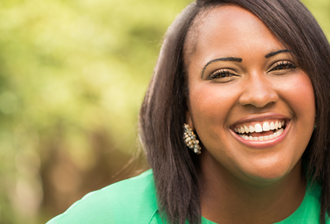Blog
 Body image can be defined as “the way that someone perceives his or her body and assumes perceive him or her.” For many, this discernment is how they define themselves. If the perception is positive, one is said to have a positive body image; however, if it is negative, the individual likely struggles with negative body image. Unfortunately, the majority of women and even a high percentage of men struggle with poor body image at some point in their lives. If an individual with negative body image seeks out constructive coping mechanisms to deal with the issue, then he or she may be able to overcome it. More often, though, the individual falls into negative thought and behavior patterns that lead to self-deprecation and issues, such as an eating disorder. In fact, some statistics show that as many as 30 million people will suffer from some form of an eating disorder during their lifetimes. What Is Body Image? Perceptions of self begin forming at a very young age. Even as early as toddlerhood, boys and girls begin learning a sense of self and may even define themselves based on labels they have heard used – pretty, chubby, short, tall, small… Body image and the associated perceptions are typically based on the individual’s perception of his or her overall attractiveness, health, acceptability, and functionality. Over time, these ideas are solidified with feedback from other peers, friends, family members, caregivers, teachers, coaches, etc. What Causes Negative Body Image? The media is one of the most significant contributors to negative body image. Television, magazines, movies, and social media presents individuals who are thin, attractive, and intelligent as the most acceptable, desirable, and valuable. And many young people begin to judge their own bodies in relation to those they see on screens and in print. Not only that, but negative experiences associated with one’s body can lead to an individual developing a negative perception of him or herself. For example, an athlete who is negatively critiqued by her coach in regards to the size or shape of her body may develop a negative sense of self-worth. Poor body image can be exacerbated by certain personality traits, such as perfectionism and self-criticism. Constant self-scrutiny and/or comparison to others can further ingrain the idea of being inadequate or unfit in one’s mind. What Is the Impact of Poor Body Image? Body image is linked to self-esteem. As such, poor body image often manifests as low self-esteem and contributes to dangerous behaviors, such as promiscuity, substance abuse, eating disorders, and even suicidal thoughts. If left untreated, these issues can be life altering and even life threatening. What Are Effective Ways to Deal with Distorted Body Image? Overcoming distorted body image is a difficult and deeply personal journey. Because of the nature of the issue, however, many individuals require intentional treatment and support to recover and regain a more positive sense of self. One of the first steps toward dealing with distorted body image is learning to recognize and acknowledge that one’s thoughts and feelings toward his or her body aren’t necessarily reality. Cognitive behavioral therapy is one approach that can help individuals work through this process and learn to utilize more positive and rational self-talk. Reinforcing a positive body image is also important. To do this, an individual needs to learn to identify his or her triggers for negative self-talk and poor body image and find ways to recognize his or her strengths – physical, emotional, and otherwise. Group therapy or counseling may be helpful in this pursuit as both serve to support self-exploration and healing. Additionally, self-care can help individuals regain a more positive sense of self. Such habits as exercise, gratitude, affirmations, and nutrition helps the individual focus on taking care of him or herself as a whole, replacing value on who he or she is as a person rather than just a perception. This approach is an investment in one’s self that emphasizes feeling as good as possibly – physically, mentally, and emotionally. Poor body image is an issue that plagues the majority of people today. Although it often starts as a negative thought, it can develop into a lifelong battle and lead to issues of negative self-talk, low self-esteem, and even self-mutilation. Fortunately, there are effective ways for individuals to overcome poor body image; however, more awareness and support is needed for individual’s dealing with the issue to feel comfortable speaking up and asking for help.
0 Comments
|
Archives
March 2023
Categories |
Navigation |
ConnectShare This Page |
ContactMK Counseling Services
135 Cumberland Rd Suite 102 Pittsburgh, PA 15237 (412) 999-2244 Click Here to Email |
LocationWebsite by TherapyPrime
|
 RSS Feed
RSS Feed